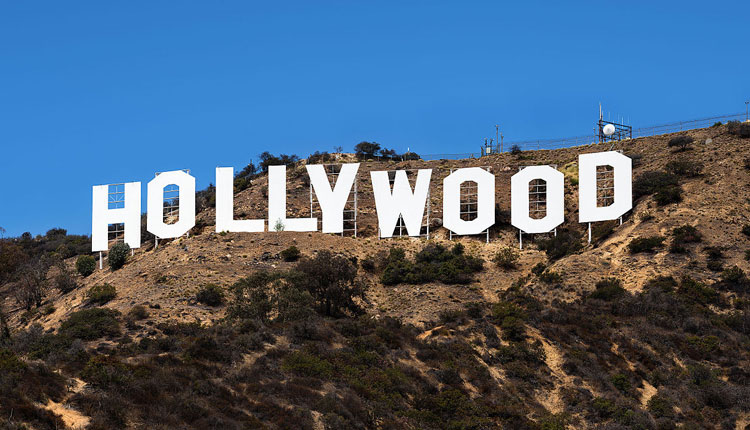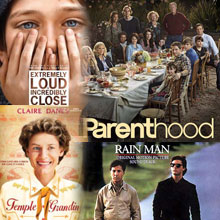
Autism Comes to Hollywood: A Helpful or Hurtful Trend?

The NJ Record and Time Magazine have both published articles in the last few days addressing the latest trend of characters with autism appearing in film and/or television. We’ve touched on this topic in the past and have received mixed feedback from readers on the helpfulness (or lack thereof) of this growing trend. There are some who think the increased exposure of characters with autism is a good thing and draws greater attention to the disorder, helping to further the cause of understanding and acceptance.
However, there are some who vehemently oppose the portrayal of those with autism in film and television when it’s not done with complete accuracy. For example, a recent Autism Key reader wrote the following in response to a review we posted on Fox’s Touch:
"My biggest complaint about this show was turning the boy’s autism into a “mystical power”. While some issues were obvious to those of us who have lived with these children – others were just not….
…I’m disappointed that the boy is made out to be some sort of “future-manipulator” who can see patterns of so many different lives that wonderously [sic] connect with each other. the final straw was the boy hugging dad at the end (even if it was to grab the cell phone out of dad’s back pocket). Oversensitivity to touch is still oversensitivity to touch….
…This is a TV show about mysticism. Throwing in the autism factor seems to be an attempt at being “trendy” with the diagnosis “flavor-of-the-week” now that autism is more in the public’s awareness.
I think my views fall somewhere in the middle of this debate. Yes, stereotypes are never helpful, particularly when it comes to how those with autism are portrayed, and repeated instances of autistics being depicted as savants or supernatural heroes certainly do not properly represent the vast majority of those with the disorder.
However, autism is a spectrum disorder by definition and I think no matter how those with it are portrayed, there will always be a segment within the autism community who take issue with writers and directors "not getting it right."
What’s most important is that these shows are stirring debate and getting others outside the autism community talking, which can be very beneficial for all involved. We have to accept the fact that there will always be errors, omissions and misrepresentations in Hollywood (no matter the topic), so I feel the responsibility of complete and accurate depictions of autism should be reserved for documentaries.
Here’s a partial list of films and television shows that have included characters with autism. There are others that could have also been included (i.e. Forrest Gump), but this list is of those that specifically address or allude to the disorder:
Extremely Loud and Incredibly Close (Film)
2011
Rotten Tomatoes Score: 45%
Touch (Television)
2012-Present
Fox
Parenthood (Television)
2010-Present
NBC
Bones (Television)
2005-Present
Fox
Fly Away (Film)
2011
Rotten Tomatoes Score: 83%
Temple Grandin (Film – Made for HBO)
2010
Rotten Tomatoes Score: 100%
My Name is Khan (Film)
2010
Rotten Tomatoes Score: 80%
Adam (Film)
2009
Rotten Tomatoes Score: 64%
Mozart the Whale (Film)
2009
Rotten Tomatoes Score: 77%
Boston Legal (Television)
2004-2008
ABC
The Black Balloon (Film)
2008
Rotten Tomatoes Score: 88%
Snow Cake (Film)
2006
Rotten Tomatoes Score: 66%
Miracle Run (Film – Made for Television)
2004
Lifetime
Mercury Rising (Film)
1998
Rotten Tomatoes Score: 17%
Rain Man (Film)
1988
Rotten Tomatoes Score: 88%
